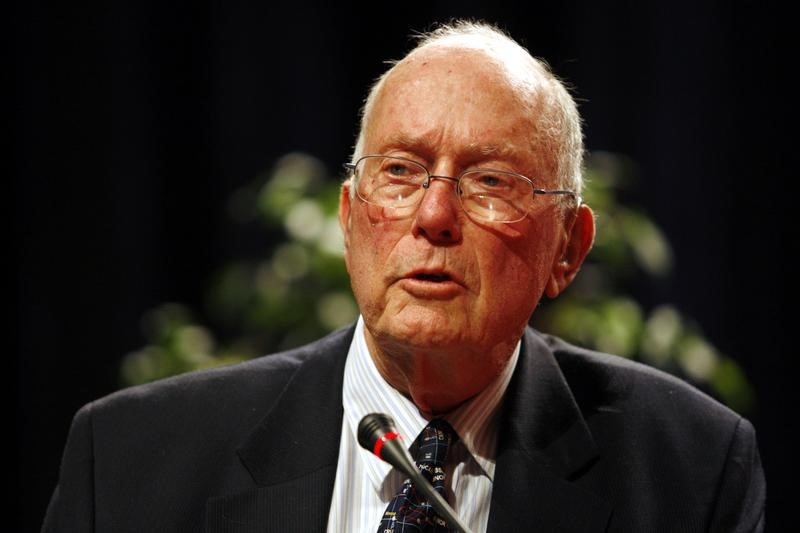SAN FRANCISCO (Reuters) - Charles Townes, who shared the 1964 Nobel Prize in Physics for invention of the laser, a feat that revolutionized science, medicine, telecommunications and entertainment, has died at age 99, the University of California at Berkeley reported.
Townes, a native of South Carolina, recalled that the idea for how to create a pure beam of short-wavelength, high-frequency light first dawned on him as he sat on a Washington, D.C., park bench among blooming azaleas in the spring of 1951.
The revelation led Townes and his students to build a device in 1954 they dubbed a maser, for microwave amplification by stimulated emission of radiation.
Four years later, he and a brother-in-law, Arthur Schawlow, conceived of a variation on that invention to amplify a beam of optical light, instead of microwave energy, and Bell Laboratories patented the new idea as a laser.
Another scientist, Theodore Maiman, was the first to demonstrate the first actual laser in 1960. But four years later, Townes shared the Nobel Prize in Physics for his work with two Russians, Aleksandr Prokhorov and Nicolai Basov, who independently came up with the idea for a maser.
Townes went on to pioneer the use of masers and lasers in astronomy, and with the help of colleagues became the first to detect complex molecules in interstellar space and first measured the mass of the giant black hole at the center of the Milky Way Galaxy.
An array of laser-based infrared telescopes he built at the Mt. Wilson observatory outside Los Angeles can measure the diameter of stars that appear as mere points of light in most telescopes.
"He was one of the most important experimental physicists of the last century," astrophysicist Reinhard Genzel, director of the Max Planck Institute for Extraterrestrial Physics, said in a profile of Townes published by UC Berkeley.
A professor emeritus at Berkeley, he was a member of the university's physics department and Space Sciences Laboratory for nearly five decades.
Townes' invention turned out to have roles in a wide range of technical applications that have become ubiquitous fixtures of the modern world. Incorporated into a broad variety of consumer electronics and optical fibers, lasers also are used to cut metal, perform surgery, trap atoms and trigger nuclear fusion reactions.

Townes also gained notice for his interest in the nexus between science and religion, once writing: "If the universe has a purpose or meaning, this must be reflected in its structure and functioning, and hence in science."